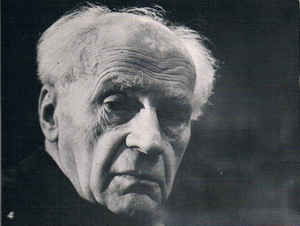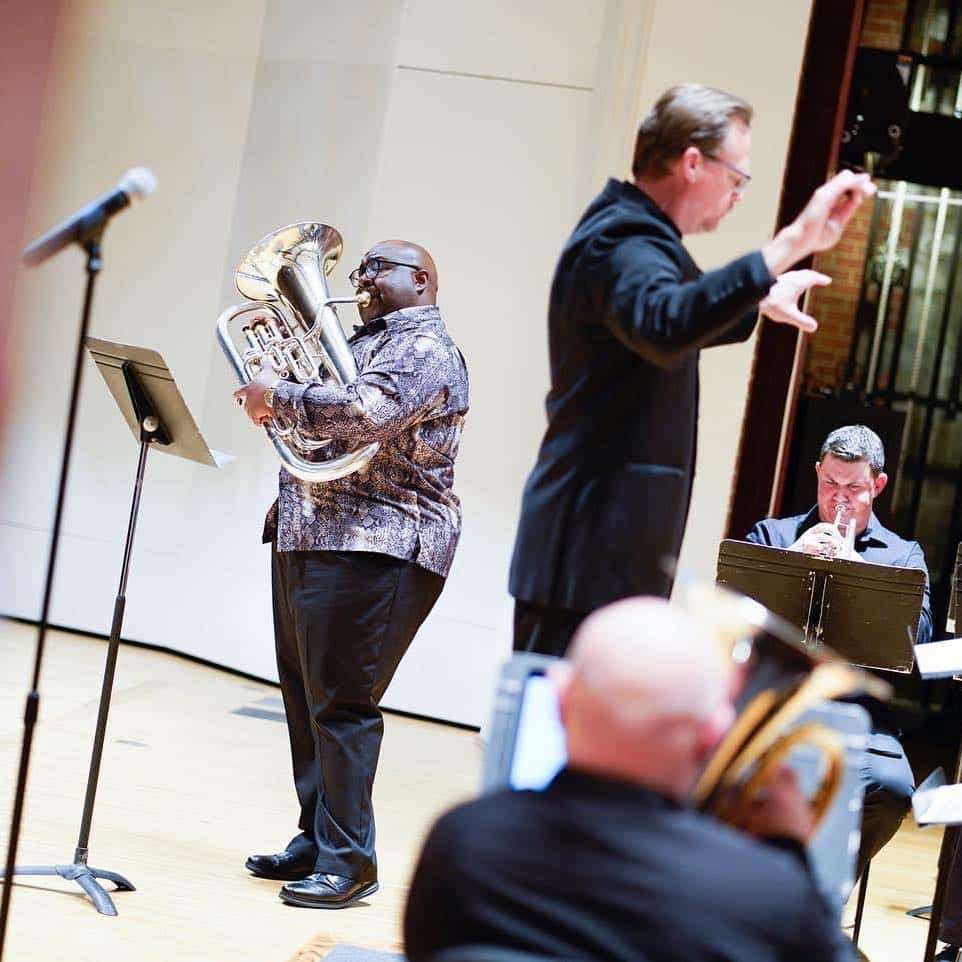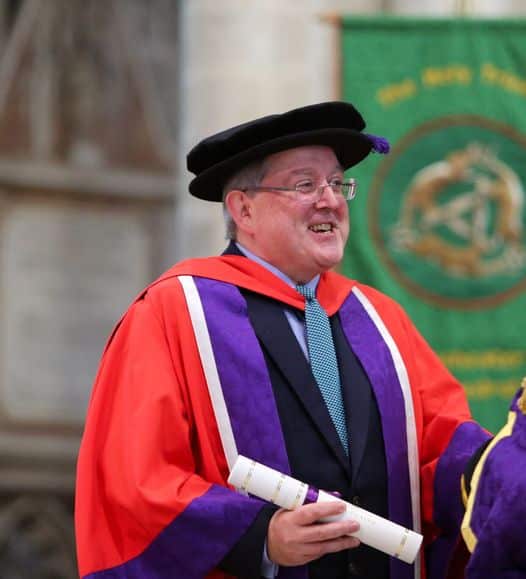The Emperor’s old clothes
mainWelcome to the 85th work in the Slipped Disc/Idagio Beethoven Edition
Piano concerto no 5, ‘the Emperor’, opus 73 (1809)
The fifth of Beethoven’s piano concertos was given its title by a British publisher, not in homage to any imperial personage, rather as a statement of its obvious supremacy over any concerto ever written before. It was the last Beethoven would write, no longer trusting his hearing to allow him to balance the solo part against a full orchestra.
The Emperor Concerto quickly became his most popular orchestral work. It appealed on first hearing not just to concerthall regulars but to many first-timers who had experienced orchestral music, or western music at all. In Rukun Advani’s 1994 Indian novel Beethoven Among the Cows, the two protagonists find the Emperor Concerto helps them ‘transform soulful torment into aesthetic torrent…. There was an immense, impassioned, ordered turbulence about the music which set in perspective everything else in life and made it seem the highest cathartic interruption within the general desirability of silence.’

This is a strikingly fine description of the processes of Beethoven’s mind during Napoleon’s siege of Vienna, his determination to use music both to represent the terrifying danger and chaos and, gradually, to achieve understanding and calm. This effect found its way into many movies. The slow movement is heard at the close of the 2010 movie The King’s Speech, signifying George VI’s deep satisfaction at his triumph over a debilitating stutter. Other films that utilise this movement include Picnic at Hanging Rock (1975), Dead Poets Society (1989), Elysium (2013) and Crime of Padre Amaro (2002).
The original concerto received its first performance in January 1811 with Beethoven’s pupil, Archduke Rudolf, as the soloist at a private gathering in Prince Joseph Lobkowitz’s palace. The public premiere was given ten months later. Its consolatory aspects notwithstanding, the bombastic title has led the work to be scheduled at political and rhetorical occasions and t acquire unfortunate associations.
Its most prolific performer, the German pianist Wilhelm Backhaus, did his utmost to identify the concerto with the Nazi cause. The Emperor was Backhaus’s calling card. He played it, aged 27, at his US debut in New York in January 1912, and he was the first to play it in a record studio 15 years later, with Sir Landon Ronald and the Royal Albert Hall Orchestra. This was the first of a dozen recordings he made over the course of the next four decades. Backhaus, who styled his photographic poses to resemble, was the first-choice soloist in this concerto in the world’s most pretigious concoert halls and you can hear why in this enduringly effective 1927 recording.

His opening trademark is nonchalance, a series of glittering keyboard runs that assert his casual command of the work and its absence of any difficulty for a titan of his stature. The element of struggle, so integral to Beethoven, is missing from the Backhaus makeup. What he supplies instead is a certificate that this is one of the highest achievements of human civilisation, delivered by a dedicated and accomplished exponent. Some aspects of this first recording are almost unsurpassable.
Six years later, in April or May 1933, Backhaus met the new German Chancellor Adolf Hitler on a flight to Munich and became his musical acolyte. Hitler appointed him head of a Kameradschaft der deutschen Künstler (Fellowship of German Artists) and Backhaus reciprocated with a public statement that ‘Nobody loves German art and especially German music as glowingly as Adolf Hitler’. In April 1936, Hitler gave him the title ‘professor’ and in September that year he invited Backhaus as his personal guest to the Nuremberg Rally.
Backhaus, who had taken Swiss citizenship in 1930, would later attempt to conceal these facts and maintain a pretence of neutrality in a prolific post-War career. His 1959 recording of the Emperor with the Vienna Philharmonic, conducted by the non-Nazi Hans Schmidt-Isserstedt, displays the same clarity of expression, the same unflappability and perfect profile. The politics of Backhaus are immaterial to his surreal ability to detach himself from the moment of playing and deliver serenity wherever he performed.
Four other Emperor specialists were tainted by Nazi affiliations. Elly Ney, who played through a Berlin air raid, adored Hitler, hated Jews and took part in Nazi ‘cultural education’ camps. The other three are more important. Walter Gieseking, who was French born, was quoted by Arthur Rubinstein with the statement ‘I am a committed Nazi. Hitler is saving our country.’ But Gieseking was also a modernist who played Hindemith and Schoenberg and brought a refreshing lack of agenda to his playing. His Emperor concerto, played in Berlin in January 1945 is almost extra-terrestial in its serene disregard for the hell that must have been raging outside.
Wilhelm Kempff, who performed for Nazi leaders a few short miles from Auschwitz, was the pre-eminent German pianist on record in the 20th century. As with Backhaus, there is no perceptible difference whether he plays with a fanatical Nazi conductor like Peter Raabe (1935) or the progressive Ferdinand Leitner (1961), the latter recording being one of the most appealing of all accounts of the concerto.
The last of our compromised pianists was the Swiss Edwin Fischer who blotted his copybook by grabbing Artur Schnabel’s professorship in Berlin in 1933. He continued to play a role in Nazi Germany until 1942, at which point he went home to Switzerland and stayed very quiet until after the War. Fischer made no adulatory statements about Hitler and did not join the Nazi party. His 1951 recording of the Emperor, with the Philharmonia Orchestra and Wilhelm Furtwängler, is instructive in many ways, astonishingly fluid in its speeds and unexpectedly smiling in its mood. Fischer went onto be the cherished teacher of Alfred Brendel, Daniel Barenboim, Paul Badura-Skoda and Jörg Demus – a gateway to the future of Beethoven pianism – and i regarded as one of the high intellectuals of the keyboard. His collaboration is something we have to consider and contextualise.
Artists are as fallible as the rest of us in respect of political judgement. They make mistakes that they later obfuscate or deny. They maintain that whatever ideology they might have espoused it did not affect the music they performed – a valid argument, as we can hear from these recordings. It is, though, important that the listener should be in possession of the facts in order to form an independent. And when the rack of Emperor recordings is topped by five such compromised characters it may say something significant about the concerto itself and its easy, unthinking popularity.
Havign set these contenders to one side, we can now survey the rest of the field tomorrow with greater equanimity.





Pace the commercial nous of British publishers, ‘Emperor’ still seems such an impolitic nickname to bestow on the greatest of piano concertos. After all, this is revolutionary Beethoven, who removed his dedication of the Eroica symphony to Napoleon when the Corsican upstart crowned himself emperor. Something else like ‘Parthenon’ surely befits the Fifth Concerto, while ‘Emperor’ could be better deployed to social conservative Brahms’ B flat concerto.
Sorry, Brahms was not a ‘social conservative’, nor can his B flat concerto be described in that way. Brahms subscribed to the ideal of Bildungsbürgertum, which is liberal and would be modern today. He hated antisemitism, and he believed in timeless values as represented in the classics. He admired much of Wagner’s music, except Tristan – not because of the chromaticism but because of the emotionalism. He was only ‘conservative’ in so far he did not want to give-up things which had proven to be worthwhile. He was a traditionalist, not a conservative. And traditionalism is an evolving concept, not an orthodoxy.
And the B flat concerto is a timeless masterpiece which can stand next to Beethoven’s fifth concerto without blushing. All nicknames are pointless.
Kempff and van Kempen in the early 50’s (DG). For me the best ever recording of this concerto. I also like Klemperer conducting the New Philharmonia for Barenboim.
I totally agree. This earlier Kempff is probably the the greatest Emperor ever.
A very nice essay. Congratulations! I look forward to the 2nd installment.
“This was the first of a dozen recordings he made over the curse of the next four decades.”
😛
Rudolf Serkin, Bruno Walter, NYPO
Schnabel, Frederick Stock/CSO
Edwin Fischer,Wilhelm Furtwaengler Philharmonia O.
Edwin Fischer, Karl Boehm, Saxon State Orchestra
Elly Ney,Karl Boehm, VPO
Elly Ney, Hermann Abendroth, BPO
Benno Moiseiwitsch, Georg Szell, LPO
Michelangeli, Giulini, VSO. Saw him/Previn/CSO 1965
Addding in Gould/Sgokowski, Eugen D’Albert/Weissmann/Berlin Radio, Rubinsteins, Weissenberg/Karajan/BPO, Paul Lewis, Horowitz/Reiner/RCA, Moiseiwitch/Sargent, the most powerful I’ve heard is Elly Ney with Boehm/VPO. Hearing is believing.
Weissenberg/Karajan, Stancul/Rahbari, and either of Kempff’s recordings for DGG (van Kempen or Leitner) are my go-to favorites.
I also admire Fleisher/Szell and Schnabel/Sargent.
I have that Gieseking wartime recording, conducted by Rother, on a Varese-Sarabande stereo LP. It is one of those VERY rare examples of RRG stereo recording – rare because it encompasses an entire work. One can certainly hear the bombs exploding outside the hall! It is a very good performance, the recording is excellent considering its time and place, and certainly worth a listen.
I also have a recording of Mindru Katz playing with Barbirolli. It would be one of my top two or three except for the fact that the piano is EGREGIOUSLY, OFF-PUTTINGLY out-of-tune. What a shame! Katz is wonderful, as is Glorious John. The producer should be ashamed!
Interesting: the Weissenberg/ Karajan cycle was never particularly warmly received. The ‘Emperor ‘ stands out? I’m a big fan of Weissenberg’s playing in general.
I am also a big Weissenberg fan, Hilary.
I like the Weissenberg/HvK “Emperor” A LOT. The recording quality isn’t anything to write home about, but the performance is great.
Why couldn’t EMI ever get a consistently good quality of sound with HvK, as DG and Decca routinely did? Some of the opera sets sound OK (Pelleas, Salome, the mono Butterfly), but so many HvK/EMI recordings are dull and diffuse. A real shame – some of HvK’s best performances are on EMI.
I’ve recently been revisiting the RCA/Weissenberg box set of reissues. Go for it if you haven’t already – it’s dirt cheap and the performances are superb. The Bartok disc with Ormandy is by itself worth the price of admission. And the recording quality beats the aforementioned “Emperor” by a mile.
I wonder if HvK was too interfering as regards the sound engineering?
Something cropped up about this in a documentary I saw. A DG engineer nodded in agreement but then reverted back to what he originally had in mind.
I think you’ve got something there, Hilary.
DG’s tonmeisters were the cream of the crop, and I can easily imagine them yessing Herb along while they just went ahead and did what they always did so well.
Perhaps EMI’s engineers (post-Legge) were too eager to please.
Might you recall the name of that doc so’s I could look it up?
– best regards, Greg
Hi Greg,
I wish I could be more precise:
Most likely to have been the one “ Karajan for the screen” or
“ Karajan -a second life “
Definitely not “Beauty as I see it”
“Karajan-a second life” :
https://www.amazon.co.uk/gp/customer-reviews/R2GIVJO3PABU6?ref=pf_vv_at_pdctrvw_srp
Mille grazie!!
are you speaking about Beethoven and music or something else ? you are mentioning a great part of music history with the names of Ney, Gieseking, Backhaus, Kempff and so many more ! that s almost forbidden today due to a misguided understanding of political over-correctness. no one of those giants were a Nazi, though. but all of them great musicians ! and Rubinstein had to speak bad about Gieseking, of course, since Walter was the greatest of them all.
Gieseking was my father’s favourite pianist. He has heard him many times live and he preferred his Beethoven to his interpretations of any other composer. In fact, the very first Beethoven work I heard in my life was the LP of Gieseking’s Emperor concerto with Karajan, which my father owned and I still have. It is quite inaudible now – it has been played too many times – but each time I think about it many good memories come into surface, of Beethoven, Gieseking, Karajan… and above all of my father, of course, who passed away in 1985. As I wrote before, I prefer the Kempff/van Kempen recording but this is also a great one, particularly in its latest remastered reissue.
Agree. Wonderful.
https://www.amazon.de/Karajan-London-Years-Beethoven-Klavierkonzerte/dp/B000006319/ref=pd_rhf_gw_p_img_1?_encoding=UTF8&psc=1&refRID=CQ39V03PCWM3C37P1MTS
Correct except for Ney.
To a large extent, the others fall into benefit of hindsight category.
Good grief, to me, the term”political correctness” is nauseating enough but “political over correctness”? Way over the top in its rhetorical dishonesty. We’re talking serious racism here not mere “political correctness” whatever that’s supposed to mean.Rubenstein did not speak ill of Gieseking. He quoted Geisking who betrayed himself as a vile bigot.ASk millions of Jews how they feel about “political overcorrectness”.
I guess my comment didn’t take so I’ll try again.It’s bad enough when people employ such disingenuous and trite terms like “political correctness”. But “political over correctness” rings even more dishonest , especially in the context of anti-Semitism. yes G , they all were Nazis or Nazi Sympathizers. Rubenstein didn’t slander Gieseking. He merely quoted him . Gieseking is damned by his own words. Meanwhile, ask millions of Jews how they feel about “political over correctness”. Furthermore, it would be interesting to see where your sympathies lie…
I was brought up on the Jakob Gimpel recording – ring any bells for anyone?
The splendid recording of this concerto that Perahia and Haitink made with the Concertgebouw should not go ignored.
You really need to proofread more carefully. So many typos. This might be my favorite: This was the first of a dozen recordings he made over the curse of the next four decades.
“I too dislike sit.” wrote Emily Dickinson, but she spoke of poetry, about which Wordsworth said there is always something a little silly. I don’t like the nickname, but it’s convenient, better than “Kaiser”, and wasn’t Beethoven’s idea.
An especially interesting essay, Norman. I didn’t know Backhaus became Swiss in 1930 … I wonder ehy?… .. as Hermann Hesse had in WWI, joining actual Swiss Cortot and Edwin Fischer, who returned there after his Berlin house was bombed in 1942.
Politically incomprehensible evet remembering systemic anti-Semitism, the 1918 defeat and collapse of the empire, disastrous Versailles treaty and reparations, the Weimar republic, Bavarian commune, hyper-inflation, depression, destruction of Jewish intellectualism and both middle classes, t a pathological Austrian upstart who promised change and for a time succeeded, then descended into madnes. How do Rasputins or Trumps happen? Napoleon himself, and every tin-horn dictator before or since, repeats until stopped. It’s older than the Romans, Saul, or David, inherently part of “the disaster-prone heart of man.”
Elly Ney plays this concerto as Will and Idea. Boehm and the VPO outplay Fischer and Furtwaengler, who are merely disappointingly excellent, and Ney herself with Abendroth and BPO live.
Gieseking is a surprise. I saw him and Ney play several times, and Backhaus and Kempff, whom I like, and Rubinstein, Serkin, and Barenbaum. For me no-one touches Ney in this work. I don’t forget, but tery to listen to the music.
Jakob Gimpel is another surprise. I’ve not heard his recording or Gieseking’s, but he was a good pianist on the strength of his Chopin, his violinist brother Bronislaw, and Jakob’s zany fantasy on the Maerine Corps Hymn on a theme from Offenbach that Marc-Andre Hamelin plays.
I saw Michelangeli play it with Previn and the CSO in 1965, encored by Chopin’s mazurka Op. 33/4. It’s not even my favorite Beethoven concerto
; that’s the third, the last classical piano concerto in Mozart’s mold.
I saw it played last year by the outstanding Egyptian pianist Wael Faroukh with the New Philharmonia of DuPage, Illinois, under Canadian Kirk Musprat with all five Beethoven concertos twice in 24 hours with a repetition next afternoon. Faroukh was born with small un-malleable hands, which I didn’t know or suspect.– quick, Beethoven light, but all there. I’ve heared him play Balakirev’s “Islamey” to rival Pletnev, Pogorelic(h), Horowitz, or Simon Barere.
Hilary, we agree on Weissenberg, as before. We disagree on Elly Ney, whose astonishing, almost alarming strength are unlike any other I know. Have heard her “Emperor” with Boehm and the VPO? Hearing is believing. I didn’t believe it until I heard it. Just to know that this view, this possibility, also exists.
The closest to her is Eugen D;Albert (1864-1932), whose 1930 Berlin Radio broadcast of the first movement is wildly dionysiac and brilliantly inaccurate. It brings to life the stories of his teacher Liszt and of Anton Rubinstein. There is an “Emperor” by Rubinstein’s last pupil, Josef Hofmann, admired by Rachmaninoff and Abram Chasins,. These are not safe performances. Cortot taught there are two approaches to music, “Respekt”, and “Verwaltigung”, adding “The first leads to nothing; therefore, I have chosen the second.”
I like Ney as a pianist . I grew up with her recording of op.111. I bought it from a record shop in Freiburg when i was about 10.
I was referring to all the pianists lumped together with her as being Nazis. I felt a distinction had to be made between Ney ( pretty unrepentant) and all the others who fall into benefit of hindsight category/ armchair criticism etc.
Of the six best-known Germanic pianists — Schnabel, Backhaus, Edwin Fischer, Kempff, and Elly Ney, I saw five play live, some more than once, and missed only Schnabel. Only! Three of them had red hair.
Bckhaus played Beethoven IV and Brahms I with LAPO and Wallenstein. I remember best the Beethoven’s quiet opening, and perfectly synchronized octave trills like Rubinstein’s in the Brahms. He looked grim with a no-nonsense reputation but was a charmer in Haydn variations and sonatas, Liszt’s third Liebestraum and Dohnanyi’s arrangement of Naila waltz that he tossed off with Moiseiwitschery ,– “delightful, de-lovely, Delibes.”
“And when the rack of Emperor recordings is topped by five such compromised characters it may say something significant about the concerto itself and its easy, unthinking popularity.” What on earth are you saying here? Can you please explain?
OKay, I get it but I have yet to hear a satisfying answer as to how great musicians who play great, timeless music remain mired in ignorant prejudices and bigotry. You would think an affinity for Beethoven or Mozart would enable them to see the ignorance of prejusice from a higher vantage point.
Backhaus, who styled his photographic poses to resemble… ???